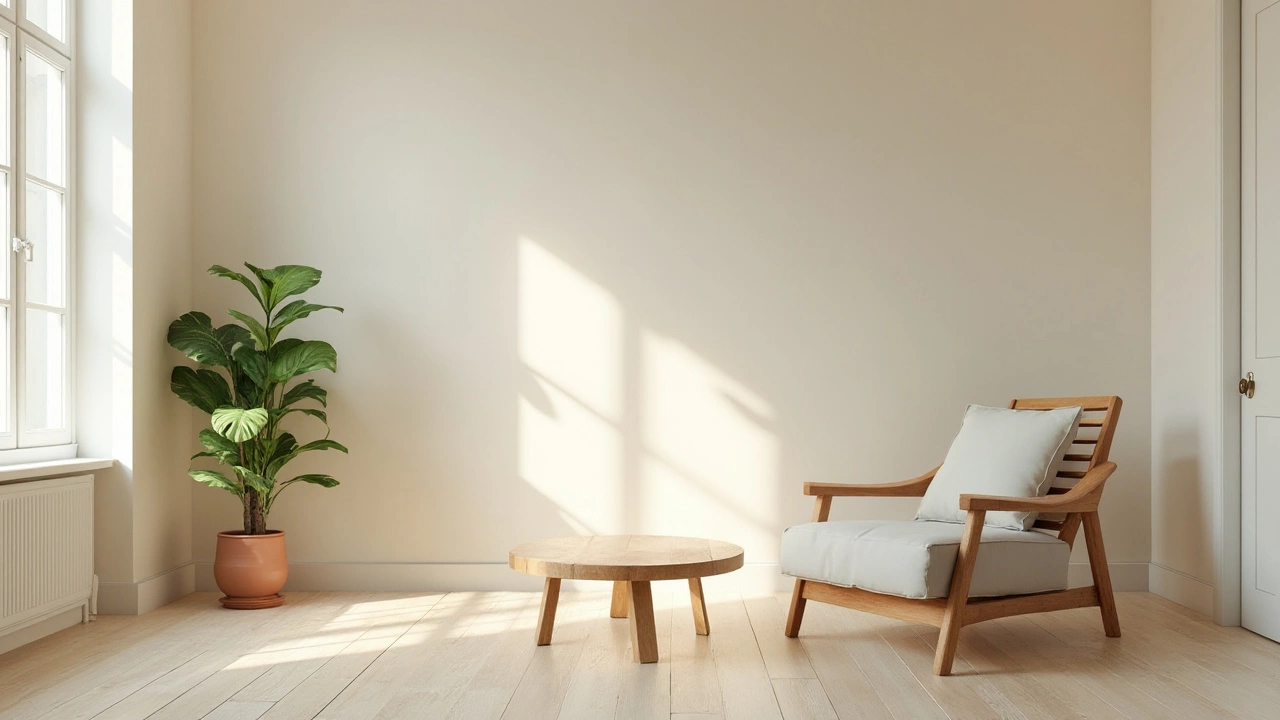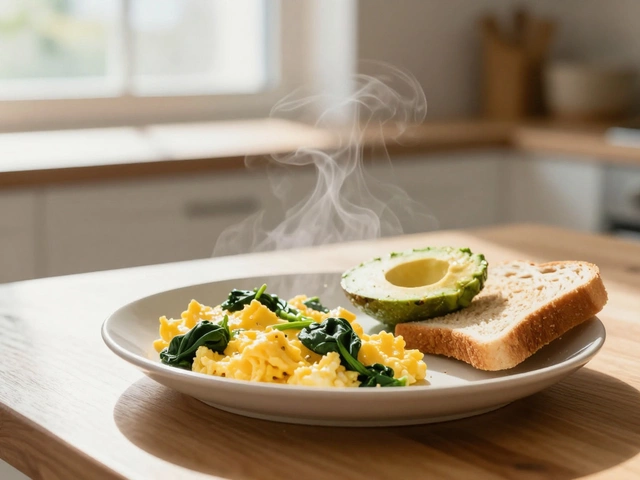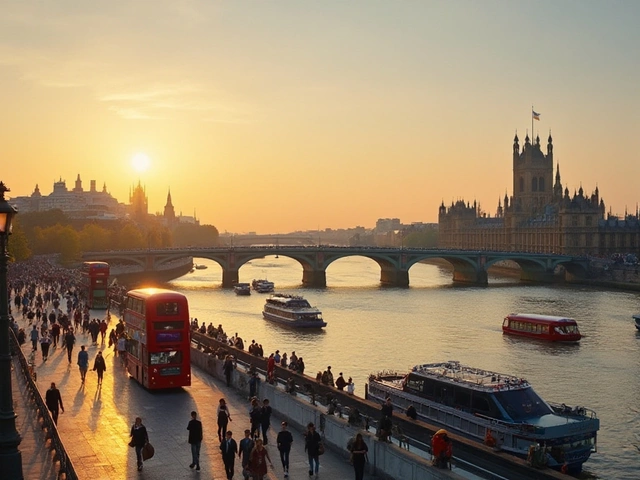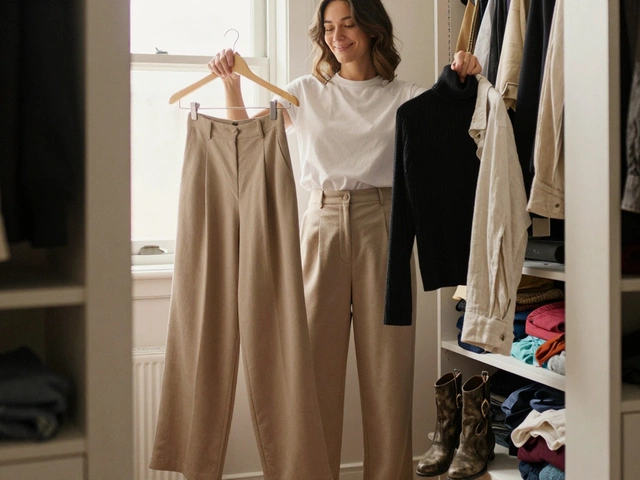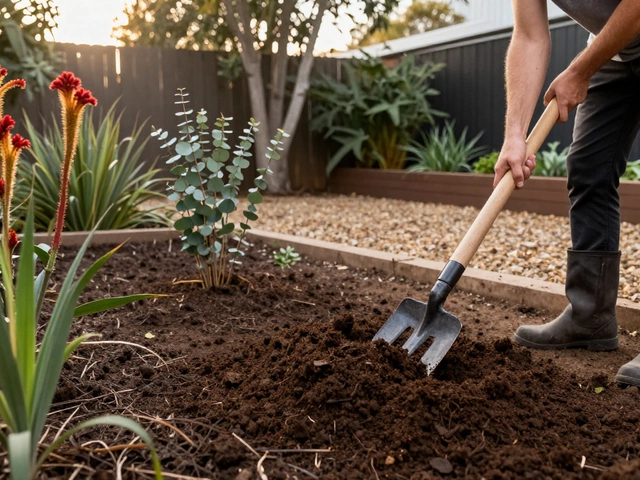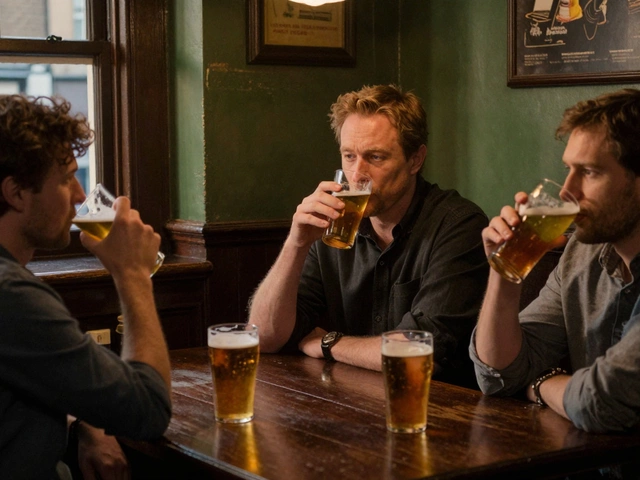In a world buzzing with distractions and excess, minimalism offers a breath of fresh air. This lifestyle, characterized by intentionally living with less, focuses on what truly matters. Many have turned to minimalism not just as a trend, but as a pathway to mental clarity and well-being. But why has this shift caught on as a potential remedy for mental health struggles?
This article delves into the ways minimalism can positively impact one's mental state. By stripping away the non-essential, individuals often find more than just a tidier living space—they discover a calmer mind, less stress, and a renewed sense of purpose. Let's explore how paring down possessions and commitments can lead to a greater sense of equilibrium in life.
- Understanding Minimalism
- Mental Health Benefits
- Practical Steps to Embrace Minimalism
- Finding Balance in Minimalism
Understanding Minimalism
The idea of minimalism is more than just a way to declutter your home; it's a lifestyle perspective that promotes finding joy in less. This concept can be traced back to ancient philosophies, echoing the beliefs of Stoicism from ancient Greece and the principles found in Zen Buddhism. Both advocate for simplicity and living a life not dominated by material possessions. In recent years, minimalism has gained momentum as a response to the rampant consumerism of the modern world. It's about reducing the excess in our lives to focus on what truly brings us happiness.
Minimalism encourages individuals to eliminate unnecessary items, commitments, and distractions, creating physical and mental space for personal growth and self-reflection. This lifestyle offers a chance to reset priorities and reevaluate what is truly valuable. The core of minimalism isn't about living with the bare minimum but rather living intentionally. It's about making deliberate choices about what we allow into our lives. For many, adopting a minimalist mindset has resulted in less stress and more clarity, as they no longer feel overwhelmed by the burden of excess.
A minimalist lifestyle isn't a one-size-fits-all solution. It varies from person to person, with some choosing to tackle physical clutter, while others focus on mental clutter, such as relationships or digital content. A widely recognized approach within minimalism is Marie Kondo's KonMari Method, which advocates for keeping items that 'spark joy' and discarding the rest. This method not only transforms physical spaces but also redirects mental energies toward a more positive outlook. As she famously phrases it, "The best way to find out what we really need is to get rid of what we don’t."
"Minimalism is not a lack of something. It’s simply the perfect amount of something," notes Nicholas Burroughs, underlining the balanced approach that defines this lifestyle.
While minimalism can seem daunting at first, it often starts with small, manageable steps. Begin by reassessing belongings one room at a time, or perhaps take stock of the commitments that fill your calendar. This journey involves conscious decision-making, where the focus is consistently on choosing quality over quantity. As we let go of excess, we create physical spaces and mental room to breathe. This new way of living can lead to more profound discussions about consumption patterns and mental well-being.
In essence, minimalism is about seeking a life that aligns with personal values and nurtures mental health. By understanding and adopting this approach, individuals can discover a newfound appreciation for the simple joys of life and an increased sense of well-being. As minimalism grows, it challenges norms and offers a sustainable solution to modern life's complexities.

Mental Health Benefits
Adopting a minimalism lifestyle can significantly affect our mental health in various beneficial ways. Simplifying possessions and commitments reduces overwhelming stimuli, leading to less mental clutter. This can create a serene environment, which is conducive to calmer and clearer thought processes. As we live in an age where consumerism heavily influences our lives, many individuals find themselves trapped by a cycle of stress caused by clutter. Decluttering helps to break this cycle, allowing individuals to focus on their mental well-being. The philosophy of ‘less is more’ provides room for people not only to breathe but to think, to reflect, and to enjoy life intensely and deliberately.
Studies suggest that owning fewer items can reduce anxiety—a common issue faced globally. A cleaner, more organized space often translates to a clearer, more focused mind. When the physical environment is free from chaos, individuals can dedicate energy and attention to relationships, personal growth, and self-care. By eliminating the nonessential, minimalism opens doors to meaningful experiences and interactions. It also encourages gratitude and contentment with what we already own, shifting the focus from what we lack to what we have. Such a shift in mindset can be incredibly freeing and empowering, leading to improved mental satisfaction and stability.
Beyond the obvious reduction in material clutter, embracing a minimalism lifestyle helps manage digital overload. In our digital age, constant notifications and messages can lead to mental exhaustion. Minimalism encourages setting boundaries with technology, promoting digital detox practices which are excellent for mental health. Creating tech-free zones or times in one's schedule can significantly improve mood and lessen feelings of being overwhelmed. This deliberate disconnection allows more time for creative pursuits and hobbies that offer joy and fulfillment, providing a healthy outlet for stress.
Minimalism fosters a sense of autonomy and control over one's life. The act of decluttering comes with decision-making that teaches what’s truly important. It is a gateway to self-discovery, an effective tool for personal empowerment. “The first step in crafting the life you want is to get rid of everything you don’t,” as said by popular decluttering expert Joshua Becker. This quote encapsulates the liberation that comes with a minimalist approach—freeing oneself from the chains of excess allows space for what truly aligns with personal values. By nurturing these aspects, individuals can experience enhanced clarity and renewed purpose.
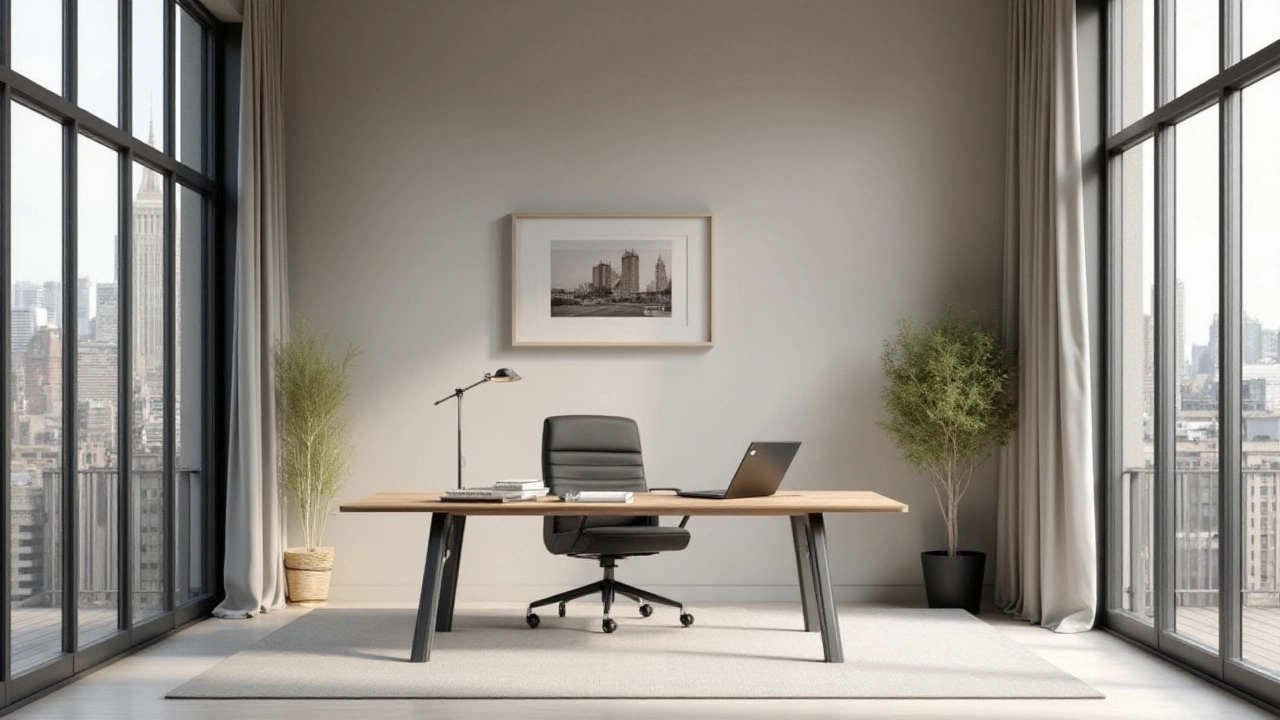
Practical Steps to Embrace Minimalism
Minimalism isn't about turning your life upside down overnight, but about making conscious choices and small adjustments that lead to a more meaningful existence. The first step is often tackling the physical clutter in your living space. Start by assessing what you own and asking yourself if each item truly adds value to your life. This might seem daunting, but it helps to break it down into manageable tasks. You could begin with a single room or even a specific category of items, like clothing or books. Use boxes labeled 'Keep,' 'Donate,' and 'Discard' to stay organized during this process.
As you're sifting through your belongings, consider adopting the '90/90 rule' popularized by minimalist advocates. If you haven't used an item in the last 90 days and don't expect to use it in the next 90 days, it might be time to let it go. This approach can be quite liberating, as it encourages you to only hold on to things that serve a purpose or bring joy. Interestingly, studies have shown that reducing physical clutter can decrease stress hormones significantly. It can also allocate more mental bandwidth for important tasks, boosting creativity and productivity.
"The goal of minimalism is not to see how little we can live with, but how efficient and intentional we can become," explains Joshua Becker, a leading voice in the minimalism movement.
Beyond the physical aspect, embracing minimalism involves a shift in mentality. It’s about redefining what 'enough' means and resisting the societal pressure to accumulate more. This means saying no to things that don't align with your values or clutter your schedule unnecessarily. Create a clear personal vision. Determine what brings you joy and alignment. Sometimes, it’s helpful to draft a list of core values that guide your purchasing and lifestyle decisions. Be patient with yourself as you navigate these changes.
Technology also plays a crucial role in a minimalism lifestyle. Audit your digital life by cleaning up your devices. Deleting unworn apps, organizing files, and unsubscribing from non-essential mailing lists can refresh your digital space and reduce the incessant mental clutter online media can bring. You may also consider adopting a digital fasting routine where you disconnect from screens at certain times to foster mindfulness and presence in the real world.
To prevent clutter from building up again, it's smart to adhere to a 'one in, one out' policy. Whenever you acquire something new, make it a rule to let go of a similar item. This practice keeps your environment stable without backtracking on the minimalist progress you’ve made. Above all, remember that minimalism is a personal journey and there are no hard and fast rules. It's about what works best to improve your mental health and well-being. Take gradual steps, celebrate small victories, and remain adaptable as life evolves.
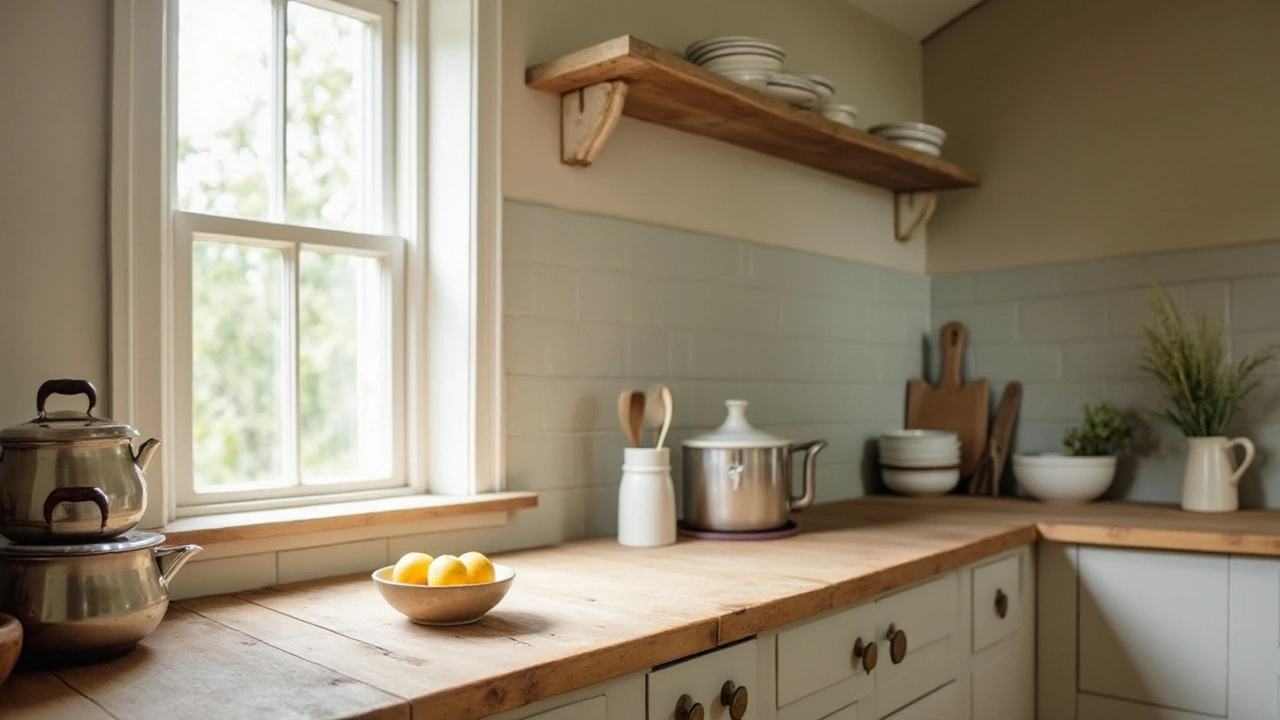
Finding Balance in Minimalism
Exploring the art of simplicity often leads us down a path where we strive for less clutter and more meaning. Yet, like any lifestyle shift, finding the right balance in minimalism is vital to harnessing its true benefits for mental health. It’s easy to become overly zealous and strip away too much, often leading to a counterproductive effect where the absence of things creates a new kind of stress. Minimalism isn't about deprivation; it’s about choosing with intention and understanding what truly enriches our lives. As such, one must tread carefully between less and too little.
A helpful way to approach this balance is to regularly evaluate your possessions and commitments with mindfulness. Ask yourself whether an item or obligation adds value to your life. This introspective practice isn't just about the tangible objects around you but extends to your calendar and relationships. This continuous filtering helps you maintain a lifestyle that aligns with your core values, creating a space where mental peace can thrive.
"Minimalism is not a lack of something. It’s simply the perfect amount of something." — Nicholas BurroughsEmbracing minimalism requires patience. It's a journey rather than a destination, and it appreciates progress over perfection. Setting boundaries is another critical step in maintaining balance. Decide on limits, whether it’s concerning shopping, digital consumption, or even work commitments. These boundaries serve as guardrails that protect you from falling back into a cycle of excess and stress.
According to a study by the Journal of Environmental Psychology, individuals living in homes with high clutter levels are more likely to suffer from elevated cortisol levels, indicating increased stress. This highlights the importance of a nurturing environment that minimalism can foster. Those attempting this lifestyle might find it helpful to start with small, manageable changes. For instance, a good practice is the 'one in, one out' rule, where for every new item brought into the home, another is removed. Such practical steps ensure that the space and environment remain stably uncluttered, allowing room for mental clarity.
While it’s easy to get caught up in the aesthetics of minimalism, remember that true minimalism is profoundly personal and subjective. What works for one person's well-being might not suit another. Therefore, personalization is key. Tailor your minimalist approach based on your individual needs rather than adopting a cookie-cutter model. Some might find joy in downsized wardrobes, while others might focus on digital decluttering or allocating specific times for relaxation and mindfulness. This personalization forms the backbone of a sustainable minimalist journey, one that seamlessly integrates into daily life and supports continual mental wellness.

